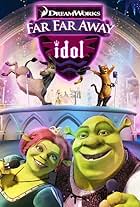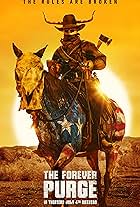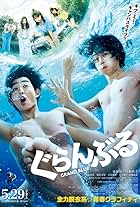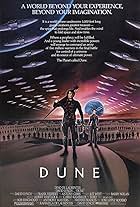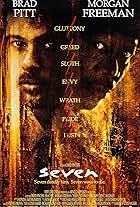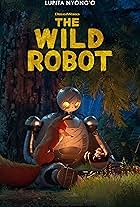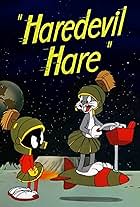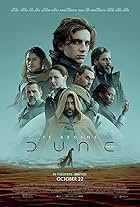
Jesse_Ung
Joined Jul 2011
Welcome to the new profile
We're still working on updating some profile features. To see the badges, ratings breakdowns, and polls for this profile, please go to the previous version.
Ratings2.3K
Jesse_Ung's rating
Reviews7
Jesse_Ung's rating
I saw this at the New Zealand International Film Festival and I truly cannot remember the last film I saw that had this much contempt and hatred for its characters. It wallows in misery and subjects its protagonists to so much cruelty, before deciding otherwise in a totally pointless and interminable third act. Performances are strong but they are in the service of people who aren't characters - are barely even a collection of ticks. On an aesthetic level, Genesis makes some truly puzzling choices; crash zooms, long unbroken takes of panning to and fro, repetitive use of the same dull pop songs and a really poor sense of pacing. The performances are truly the only thing that work, and at over 130 minutes long, the performances are a very small saving grace within this awful slog.
I am not one to go in gunning for a film, and I was actually quite excited to see this. I hated it from start to finish, I was in misery, and I highly doubt I will see a worse film this year.
I am not one to go in gunning for a film, and I was actually quite excited to see this. I hated it from start to finish, I was in misery, and I highly doubt I will see a worse film this year.
In their follow up to 2017's Waru, Kerry Warkia and Kiel McNaughton have gathered a small army of incredible female Pasifika filmmakers for Vai - an emotionally profound piece of work that is unlike anything I've ever seen onscreen.
Told in what is essentially eight vignettes, Vai explores the various stages in which Vai comes of age - as a young girl to a young woman to an elder. Each vignette features a different version, so to speak, of Vai - as she exists in different times and different Pacific Islands. If this sounds unwieldy, I assure you it isn't - each vignette flows beautifully into the next and each narrative is succinct and precise.
The film is beautiful to look at. Drew Sturge, the film's director of photography, beautifully captures the different textures that the setting of each vignette offers. From the deep blues of the sea in Fiji to the pale browns of a small Tongan village to the lush greens of Samoa. These places feel absolutely alive. Much like Waru, much of each vignette is presented in one continuous take. Although there are a few instances where the film deviates from this choice, it never calls attention to itself. Also of note is Lauren King's mesmerizing score. Used only sparingly throughout but effectively and never intrusively. Performances are exceptional across the board, young and old, each of the actresses brings an exceptional level of nuance and heart to Vai as well as making her their own in each of their respective vignettes.
I would say this is the best film I've seen so far this year, and a film I would dare compare to Richard Linklater's Boyhood or Barry Jenkins' Moonlight. It is such a profound character study and also a deep dive into identity and the relationship between identity and our culture. How much our own identities are formed by our culture, the places we live and the places we came from. Each vignette explores a specifically different Pasifika identity, and in doing so highlights the value of ancestry and cultural heritage to one's own identity, in a way that I can't say I've seen in a film before. Vai, no matter where, how, or at what age she exists in time, is shaped by those who came before her and where they came from.
I found myself profoundly moved by Vai, and left the cinema invigorated in a way that I hadn't been coming out of a film in a while. This is a film that makes me proud of our industry, and motivated as a filmmaker.
Told in what is essentially eight vignettes, Vai explores the various stages in which Vai comes of age - as a young girl to a young woman to an elder. Each vignette features a different version, so to speak, of Vai - as she exists in different times and different Pacific Islands. If this sounds unwieldy, I assure you it isn't - each vignette flows beautifully into the next and each narrative is succinct and precise.
The film is beautiful to look at. Drew Sturge, the film's director of photography, beautifully captures the different textures that the setting of each vignette offers. From the deep blues of the sea in Fiji to the pale browns of a small Tongan village to the lush greens of Samoa. These places feel absolutely alive. Much like Waru, much of each vignette is presented in one continuous take. Although there are a few instances where the film deviates from this choice, it never calls attention to itself. Also of note is Lauren King's mesmerizing score. Used only sparingly throughout but effectively and never intrusively. Performances are exceptional across the board, young and old, each of the actresses brings an exceptional level of nuance and heart to Vai as well as making her their own in each of their respective vignettes.
I would say this is the best film I've seen so far this year, and a film I would dare compare to Richard Linklater's Boyhood or Barry Jenkins' Moonlight. It is such a profound character study and also a deep dive into identity and the relationship between identity and our culture. How much our own identities are formed by our culture, the places we live and the places we came from. Each vignette explores a specifically different Pasifika identity, and in doing so highlights the value of ancestry and cultural heritage to one's own identity, in a way that I can't say I've seen in a film before. Vai, no matter where, how, or at what age she exists in time, is shaped by those who came before her and where they came from.
I found myself profoundly moved by Vai, and left the cinema invigorated in a way that I hadn't been coming out of a film in a while. This is a film that makes me proud of our industry, and motivated as a filmmaker.
I'm going to preface this review by saying that of the films that I saw at the 2017 New Zealand International Film Festival, this was my least favorite. It frustrated me, made me angry, and yet, I couldn't stop thinking about how angry and frustrated it made me, so in retrospect this may be a selling point. Take that as you will.
So, an excruciatingly terrible title aside, the film is essentially Romeo and Juliet meets West Side Story with twelve-year olds - crossed with Stand By Me meets Beasts of the Southern Wild. Don't Swallow My Heart Alligator Girl suffers from a full blown identity crisis as far as what kind of film it wants to be - be it a coming of age tale, a magical- realism fantasy, a gang rivalry thriller, a family drama - before finally deciding "screw it" and trying to be all of them at once.
The end result? It's a complete mess. The film tries to do too many things all at once and never stays focused long enough for you to care. It blends relatively nuanced family/sibling drama with magical realism and tween romance and also gang warfare but also historical supernatural feuds - none of it gels. It's so set on bringing you all of these different ideas that it forgets to fully develop any of them. Cauã Reymond delivers the best performance in the film whereas the two young leads are precocious and completely insufferable - despite the fact that they are supposed to carry the bulk of the emotional backstory. I never cared about them, and at over two hours, the film is a complete slog from beginning to end.
The entire film is set in a dingy town with a very limited color palate, and unfortunately there is never a sense of place about the town either. At least when the two kids meet at night there is a variance in look somewhat - the sky is captured as a hazy dark blue with fireflies glowing all around. Overall, it looks fine - visually, but there's nothing particularly dynamic about it.
Don't Swallow My Heart Alligator Girl feels like bits and pieces from completely different movies cobbled together, with a flimsy framework of a plot to tie them together. The film shoots for the stars and deserves points for trying something different, but none of the film's disparate elements feel cohesive.
So, an excruciatingly terrible title aside, the film is essentially Romeo and Juliet meets West Side Story with twelve-year olds - crossed with Stand By Me meets Beasts of the Southern Wild. Don't Swallow My Heart Alligator Girl suffers from a full blown identity crisis as far as what kind of film it wants to be - be it a coming of age tale, a magical- realism fantasy, a gang rivalry thriller, a family drama - before finally deciding "screw it" and trying to be all of them at once.
The end result? It's a complete mess. The film tries to do too many things all at once and never stays focused long enough for you to care. It blends relatively nuanced family/sibling drama with magical realism and tween romance and also gang warfare but also historical supernatural feuds - none of it gels. It's so set on bringing you all of these different ideas that it forgets to fully develop any of them. Cauã Reymond delivers the best performance in the film whereas the two young leads are precocious and completely insufferable - despite the fact that they are supposed to carry the bulk of the emotional backstory. I never cared about them, and at over two hours, the film is a complete slog from beginning to end.
The entire film is set in a dingy town with a very limited color palate, and unfortunately there is never a sense of place about the town either. At least when the two kids meet at night there is a variance in look somewhat - the sky is captured as a hazy dark blue with fireflies glowing all around. Overall, it looks fine - visually, but there's nothing particularly dynamic about it.
Don't Swallow My Heart Alligator Girl feels like bits and pieces from completely different movies cobbled together, with a flimsy framework of a plot to tie them together. The film shoots for the stars and deserves points for trying something different, but none of the film's disparate elements feel cohesive.



